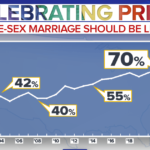What’s Next for Britney Spears’ Conservatorship Case
Britney Spears broke her silence with emotional testimony on Wednesday, detailing the “abusive” circumstances of her 13-year-long conservatorship, claiming that she has not been allowed to remove her IUD or get married, while forcing her into unwanted professional endeavors.
Spears; conservatorship dates back to 2008, around the time of her very public mental health struggles. After losing custody of her two children to former husband Kevin Federline and then refusing to turn over her boys after a visit, Spears was hospitalized and placed on a 5150 psychiatric hold, beginning the conservatorship under her father, Jamie Spears.
The pop star is actually under two conservatorships: a conservatorship over her estate, which focuses on financial matters, and a conservatorship over her person, which grants the conservator control over her medical and personal decisions.
Spears’ testimony was the first time she publicly expressed that she would like to end the conservatorship and remove her father from it without an evaluation.
“I just want my life back,” Spears said at the hearing. “And it’s been 13 years. And it’s enough. It’s been a long time since I’ve owned my money. And it’s my wish and my dream for all of this to end without being tested.”
Though Spears has had a very public battle with mental health in the past, legal experts say that her situation does not qualify under the conditions that would require a conservator.
“Conservatorships are for people who are unable to speak for themselves: The infirm, elderly or cognitively impaired,” Neama Rahmani, a Los Angeles-based trial lawyer and former federal prosecutor, told TheWrap. “Maybe they’ve had dementia, suffered from a stroke or are severely mentally ill or mentally disabled. Those are the types of people for whom a conservatorship is designed.”
Given that Spears’ situation does not fall under these categories, Rahmani says it’s “almost certain” that the conservatorship will end, unless there is compelling evidence in her medical records that indicate that she’s unable to take care of herself and perform daily activities, such as eating or going to the restroom.
Leslie Salzman, a clinical professor of law at the Cardozo School of Law and expert on elder law, emphasizes Spears’ competence in an interview with NPR.
“It seems quite unusual that you would have a person who was capable of going out and doing all the kinds of professional activities [Spears] was doing, who is found to be totally incapable of managing either her personal or property affairs,” Salzman said.
She went on to explain that the terms of Spears’ conservatorship are uniquely limiting.
“(A conservatorship) is supposed to be a narrowly tailored order, and the court is always supposed to use the least restrictive alternative,” Salzman said.
Similarly, Sarah J. Wentz, a legal expert and partner at the firm Fox Rothschild, told TheWrap that it’s “extremely unusual” for a person like Spears to be under a personal conservatorship, especially one as restrictive as this. However, she says that the chances of Spears getting out of the conservatorship without — per Spears’ request — an evaluation are “unlikely.”
“I think that the court will feel that after a 13-year period of continuously feeling like this is needed, they’re going to need some pretty strong evidence to show that she’s not going to harm herself or go down a really bad path, if they remove (the conservatorship),” Wentz said. “So, in order to do that, I think that they’re going to need to have an investigator spend some time with [Spears] to determine if they should just reduce the control or remove the conservatorships altogether.”
Civil rights attorney David Henderson described how — according to Spears — harmful her conservatorship is in a CNBC interview.
“Conservatorships for someone like Britney Spears are supposed to help them regain their independence, and from what she explained, it’s had the exact opposite effect on her life,” Henderson said.
While Rahmani says there is no legal basis for Spears to be under an estate conservatorship given her abundant financial success with her pop career, he sees how one could potentially point to Spears’ breakdown and mental health issues to indicate the need for a conservatorship over her person.
The next step in Spears’ fight to end her conservatorship falls on Spears’ attorney to file a petition to end the conservatorship, according to Rahmani. Once the petition is filed, the conservator may oppose the petition within 30 days. Since filing the petition to end the conservatorship is a dispositive motion — meaning that this petition would end the case — Rahmani assumes the case will proceed by hearing, rather than the court ruling on paper.
While the court might seek more information, including medical records, the case is 13 years old, and it can be assumed that there is plenty of information for the court to rule on. Therefore, the hearing can proceed relatively quickly following the filing of the petition.
“I expect that it will be ended shortly after the petition is filed,” Rahmani concluded.
Read More

